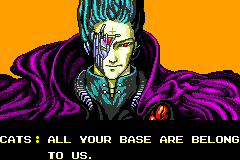The problem I see with academics in connection to video games is
that there is a sizable contrast in the sense of achievement between the
two. For some people tests can be an
achievement akin to surviving a level or unlocking a power up, but for many the
sense of achievement comes during graduation or the final days and weeks of senior
year as pressure is lifted and there is a more enjoyable and fun atmosphere in
the school. One might suggest that
perhaps reaching summer vacation is like beating a level in a game, i.e. freshman year of
high school = level one of the 'game' of high school, and yet this has not been my experience or the impression I have
gleaned from talking to students about summer and school. Instead, it has been my experience,
that summer vacation is seen as a reprieve from school and more along the lines
of a much need pause and bathroom break during game play than the finish line
of a game. As Jane McGonigal (not
to be confused with Minerva McGonagall of Harry Potter fame) mentioned in her
TED talk the notion of “epic win” is a strong motivation for gamers and I see few
opportunities for most students to experience this in school (as things are currently situated) with any
frequency, perhaps once or twice a year a student may experience an "epic win", but that is over the course of an entire year, hardly comparable to the more frequent rewards and sense accomplishment provided by video games over a more limited time frame.
Perhaps Ms. McGonigal is too close to the making of games
for her outlook on games seems overly simplistic and widely exaggerated. “In real life when we face failure,
when we confront obstacles we often don’t feel that way (referencing the way we feel in games). We feel overcome, we feel overwhelmed,
we feel anxious maybe depressed, frustrated or cynical. We never have those
feelings when were playing games, they just don’t exist in games.” Clearly, Ms. McGonigal has never
played FIFA or experienced lag on Halo or tried playing Contra without
using the Konami Code (famous video game code that in Contra gives 30 extra
lives and is the only way to beat the game without being a freak at video games). I also sincerely hope that Ms. McGonigal is misguided when
she says we are the best versions of ourselves in games or else the world truly
is doomed (Warning: Link may or may not contain salty language). Video games can be immensely
frustrating and aggravating, sometimes to the point that one gives up or
abandons the game, but gaming is by choice school on the other hand is
not. Technically school becomes
optional sometime between 16 and 18 depending on the state and before that it is possible to dorp out if parental permission is gotten, but in reality there is intense social pressure
for youths to finish high school so many do not truly view this as an
option. In contrast when I play a
video game I get to pick the game, I get to pick who I play against (computer,
friend, random dude on the internet etc.), I usually can pick the difficulty
(easy, hard, insane or against a noob, 1337 etc.) and when I choose these
things I, and many others like me, prefer a challenge, but I also like to win
so the level of game play is adjusted accordingly so that I can win while still
having to put forth noticeable effort.
Again here is a situation that education cannot feasibly match. I cannot possible adjust the “sliders”
on the classroom to perfectly match each individual student, in my classroom as there will
typically only be one of me to 20-30 students and those students will all have
different preferences and abilities even in AP and advanced classes where a
certain amount of prior knowledge is required.
In response to some of Mr. Gee’s
paper:
He asks "Why should the identity of being and doing science be less appealing (in comparison to video games)?" My response to that is one's “identity of being” in biology typically starts off being not so good to awful at biology and unlike Elder Scrolls you’re not slaying skeletons or dragons to improve your “identity” rather you’re reading dozens upon dozens of dense pages out of a biology textbook. Between the two slaying dragons is generally seen as more fun.
I generally agree with Mr. Gee’s assessment of interaction and comparing schools to video games, but he forgets that they’re no bullies that you don’t conquer in video games, you don’t get swirly’s and embarrassed in front of all your peers in video games, but for some students this is a very real part of their academic experience and the type of interaction they frequently experience in school.
Again I agree by-in-large with Mr. Gee, but when he says “in school, they should help “write” the domain and the curriculum they study” he is taking an overly simplistic view that would be amazing if it were more frequently realized.
I wholeheartedly agree with Mr. Gee when it comes to risk taking. Risk taking and the potential repercussions that come with failure in the school are much greater than those in video games and as a result the willingness to take risks is higher in video games. Mr. Gee asked earlier “How do you get someone to learn something long, hard, and complex and yet enjoy it” and in my opinion one of the biggest aspects that is preventing more kids from enjoying the challenges presented by school is these intense repercussions that can come with risk, though they do not always come and often come to a lesser degree than students anticipate.
I spoke to customization earlier and I would love for more customization to take place I just believe that limited resources and time means that there is only so much customization that can feasibly take place. That being said I do plan on attempting to tailor my lesson plans to meet the needs of as many students as feasible and I am currently grappling with the notion of giving different amounts of work to different students, as we have mentioned in class which should hopefully allow for some customization by students (I am currently leaning in favor of this notion).
Agency is important if students are going to enjoy school and sadly Mr. Gee is right that “such ownership [as found in video games] is rarer in school.”
He asks "Why should the identity of being and doing science be less appealing (in comparison to video games)?" My response to that is one's “identity of being” in biology typically starts off being not so good to awful at biology and unlike Elder Scrolls you’re not slaying skeletons or dragons to improve your “identity” rather you’re reading dozens upon dozens of dense pages out of a biology textbook. Between the two slaying dragons is generally seen as more fun.
I generally agree with Mr. Gee’s assessment of interaction and comparing schools to video games, but he forgets that they’re no bullies that you don’t conquer in video games, you don’t get swirly’s and embarrassed in front of all your peers in video games, but for some students this is a very real part of their academic experience and the type of interaction they frequently experience in school.
Again I agree by-in-large with Mr. Gee, but when he says “in school, they should help “write” the domain and the curriculum they study” he is taking an overly simplistic view that would be amazing if it were more frequently realized.
I wholeheartedly agree with Mr. Gee when it comes to risk taking. Risk taking and the potential repercussions that come with failure in the school are much greater than those in video games and as a result the willingness to take risks is higher in video games. Mr. Gee asked earlier “How do you get someone to learn something long, hard, and complex and yet enjoy it” and in my opinion one of the biggest aspects that is preventing more kids from enjoying the challenges presented by school is these intense repercussions that can come with risk, though they do not always come and often come to a lesser degree than students anticipate.
I spoke to customization earlier and I would love for more customization to take place I just believe that limited resources and time means that there is only so much customization that can feasibly take place. That being said I do plan on attempting to tailor my lesson plans to meet the needs of as many students as feasible and I am currently grappling with the notion of giving different amounts of work to different students, as we have mentioned in class which should hopefully allow for some customization by students (I am currently leaning in favor of this notion).
Agency is important if students are going to enjoy school and sadly Mr. Gee is right that “such ownership [as found in video games] is rarer in school.”
I suppose I shall stop here as this post is already far too
long and I do not wish to scare off the few poor souls who read my blog. I will leave you with the most important takeaway I got from Ms. McGonigal's talk "Gamers always believe an epic win is possible" and this, to me, is the feeling we need to cultivate and make students believe is possible in schools.
Smorgasbord Fun Fact: Peanuts are an ingredient in dynamite!
or more accurately:
Obligatory Title Reference:




I think your perspective and experience on gaming adds a lot to the conversation here. I think McGongal is forgetting the challenges that people on the other side of the game may face, simply because it's not her main concern. In her TED talk, she makes note of the "good challenges" in video games and speaks of the elusive epic win, but she doesn't really mention the more common outcome--mass frustration when you can't beat a level after 3 hours of trying and you're ready to throw something.
ReplyDeleteI'd love to see my students have the feeling of an epic win in something. But I'm realistic about the chances and likelihood of it. It's a nice idea, but I don't know what would trigger it.
(And during the entire TED talk, I was waiting for McGonigal to say "Five points to Griffindor!")
In response to your first two paragraphs, I am going to play devil's advocate here. I agree that many students don't relate summer break to the same feeling as "leveling up" or that they don't feel like they can pick their level of difficulty in school, or who they're playing against, etc. However, I think that video games have many of the important principles that we are learning about that are necessary to include in education. We need scaffolding, so that when students accomplish the end of a unit they feel like they leveled up. We need to differentiate our reading materials, that ways students feel like they can control their level of difficulty. We are learning all these principles in our education courses, and they are they answers to the points you brought up in your first two paragraphs.
ReplyDeleteAs teachers, we are like the video game creators --- we are responsible for how students end up feeling at the end of the school year, we control the creation of their school year, we have the power to give them the feeling of an epic win. And the way that we can accomplish that is by learning how video games allow players to accomplish this and make sure to incorporate those principles in our lesson plans and classroom management plans. So in response to your first two paragraphs, it is feasible. But the responsibility falls primarily on us, not the students.
First of all, great title! Secondly, I so fully agree with this blog that I feel I could have copied and pasted it into my own blog and been proud of it (of course you and the profs may not have appreciated that much...) I liked what you said about leveling up not being as simple in school, and would like to add that it is not as tangible. I wonder how classrooms would be effected if we were somehow able to make a students learning more obvious and akin to a level-up in a video game? Also I wonder how we could do this? While I agree with you that customization in the classroom (akin to setting sliders) would be a fantastic idea, let me say that, while you are considering the topic, I don't know if its a good idea to give different amounts of work to different students. As a student who was rather successful in high school, I would have been very, very upset if I was given a harder work load because I was doing better. I would have become a problematic student and most likely would have steadfastly refused to do the extra work even if it hurt my grade; just food for thought. All in all this was a fantastic blog, and I truly enjoyed reading it!
ReplyDeleteThis notion of giving students different amounts of work is something I have continued to grapple with as we have discussed in class how it can be important to recognize the different levels of ability and adjust accordingly, but I like you was usually pretty successful in school and there were only a few classes were I would have even considered doing additional or optional work. I have thought about giving the work as extra credit or something similar, but this makes me nervous as I feel it might not be fair to all students and I don't want those students who struggle, but do all the work to try and do the additional more challenging work only to get even more confused.
DeleteThis topic will be something I continue to look at over the course of the year. Hopefully, one of the classes we take during the year, perhaps our methods course?, will give me a better idea of how to handle this situation of kids far out pacing their peers. I also plan to speak to my mentor teacher about this and fingers-crossed they might be able to give me some tips or suggestions.